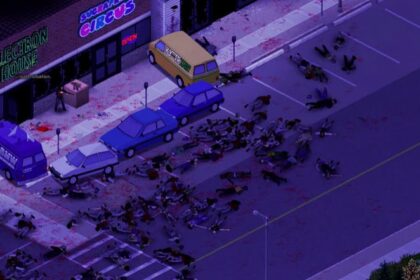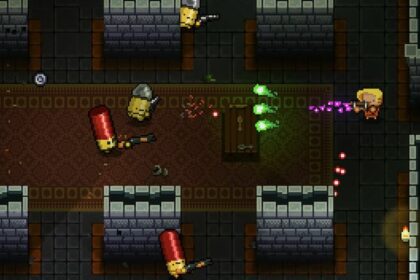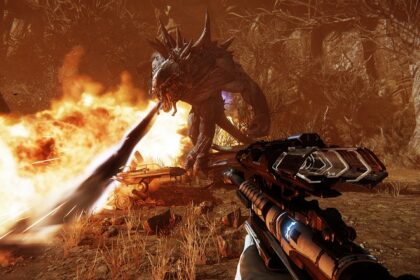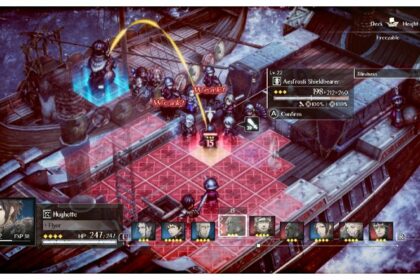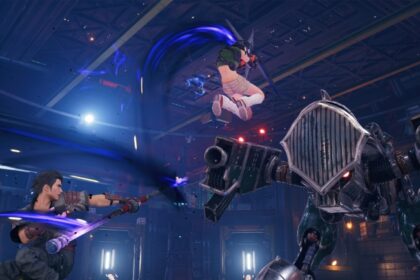Few games have the honor of claiming that they’ve revitalized an entire genre with their originality.
FTL: Faster Than Light is definitely on that list when it comes to roguelikes. Before FTL, it wouldn’t be much of a mistake to say that roguelikes never quite managed to enter the gaming mainstream. Despite being one of the oldest genres, their difficulty always made them something of an acquired taste.
However, FTL changed all of that — without necessarily making the game easier.
As the ultimate Star Trek simulator that’s not a Star Trek game, it saw you piloting your spacecraft while being hunted by a group of rebels. It was all one big mad dash across the Galaxy, where you had to relay an important message to your Federation. Ultimately, that’s all you ever got as far as the story goes — but the gameplay was really something else.
But what happens when you want to try out other games like FTL? Don’t worry, we’ve got you covered with an extensive list! Here’s the best 7 games like FTL to check out.
Darkest Dungeon
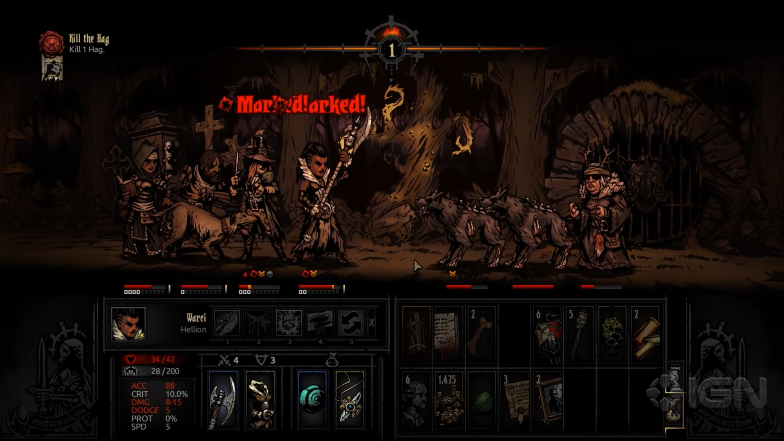
The resurgence of the roguelike genre in the past few years has seen plenty of games bring new and exciting gameplay mechanics to the table — and Darkest Dungeon is among the best of them. Fans of games like FTL will fall in love with this title.
With an art style that’s as grim as it is expressive, the game has a unique aesthetic that’s made it an instantly recognizable hit. Prepare to feel as if you’re a part of some kind of demented cartoon, as your party of drowsy adventurers continues going from one creepy background to the next.
Make no mistake, though, behind the somewhat cartoonish look lies a deep and intimidating turn-based strategy game, whose tactical encounters are dripping with character.
Any one of those things would make Darkest Dungeon worth playing, but the stress system of the game is what truly sets it apart from the rest.
Yes, stress is more than a feeling you’ll have in the throes of the game’s tense combat encounters — it’s a separate game mechanic, and one that’s just as vital as health. In many ways, it’s the core of the game; unlike health, it persists between locations and quests. And it’s something you’ll have to manage between quests and in the midst of the combat as well.
For example, when your heroes aren’t battling increasingly more difficult monsters and occult necromancers — they’ll be fighting with their PTSD, mostly by gambling, drinking, or praying; in other words, pretty much like real people do.
This second layer of management does a great job of adding a new, human side to each character, while also helping you appreciate their frail nature. This is one of the most impactful roguelike games on Steam.
Into The Breach
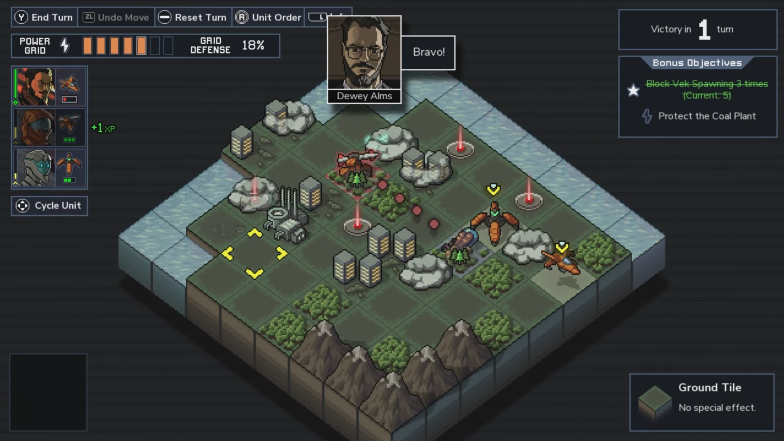
During one of his many strong diatribes on the nature of humanity and human civilization, Star Trek’s Captain Picard said that it was perfectly possible to lose despite not committing any mistakes.
This piece of wisdom was always a design choice in most roguelike games, but Into The Breach captures it quite beautifully. It’s a strategy game that’s tough as nails, more about the process of mitigating loss than the spoils that come with winning. At your best, you’ll experience a series of pyrrhic victories, at worst, you’ll go through crushing defeats.
However, the developers managed to do something that most failed roguelikes don’t. They succeeded in making failure and frustration the fuel that keeps players hooked, rather than making it the reason they give up.
In terms of story, Into The Breach will probably remind you of the Pacific Rim movie more than anything else.
The game sees you battling a subterranean species of Kaiju monsters that are on the verge of exterminating humanity, and the only thorn in their side is a number of huge mech units that stand the chance of repelling them. If the art style and some of the design solutions remind you of FTL, it’s because this game is a roguelike follow-up made by the same studio.
In terms of gameplay, each mission consists of a turn-based tactical battle, fought between a number of city-destroying, giant monsters, and your group of three (equally giant) mechs. Every encounter happens on a small 8×8 grid — and that superficial simplicity actually results in a ton of tactical depth, which you’ll become better at navigating as you pour hours into the game.
This is one of the best mech games on the Switch, and fans of games like FTL will fall in love with its challenging, strategic gameplay.
Crying Suns
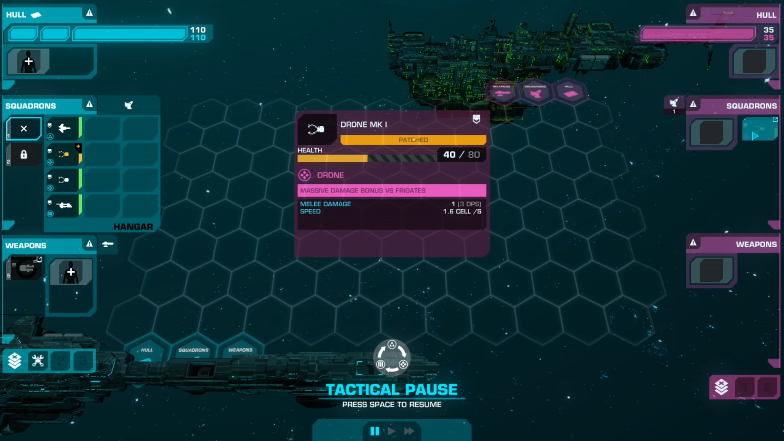
Crying Suns is a game that was pitched like a successor to FTL, but was thematically inspired by Isaac Asimov’s famous Foundation series. Ultimately, it doesn’t quite manage to reach the gameplay heights of FTL or the narrative depth of the Foundation novels, but it’s still a darn good game in its own right.
Much like you would in FTL, Crying Suns sees you taking helm of a spaceship on its way through a series of randomly generated solar systems, and trying to navigate increasingly hard combat encounters while keeping your crew alive in the process.
However, while FTL gives you about three written sentences as the game’s story, Crying Suns goes in an entirely different direction. Forget about endless replayability and a paper-thin story dressing; instead, Crying Suns immerses you in a richly-built, vivid, but still grim world — and an ambitious story.
You play as Ellys Idaho, a clone of a starfleet admiral, which is probably an intentional nod to Duncan Idaho, the famous clone from the Dune series. Be that as it may, you wake up decades after the mysterious fall of the galactic empire that you once fought for.
At the start of the game, you set out in your battleship on a quest to discover what exactly happened — and whether it’s possible to restore the civilization you were a part of.
If you’re a fan of tactical space combat and sci-fi classics like Foundation, Dune, or any of Arthur Clarke’s work, this game will be right up your alley. Millennia-old emperors and omnipotent robot gods will almost certainly keep you glued to your screen for tens of hours. It’s one of the best games set in space for fans of games similar to FTL.
Slay the Spire
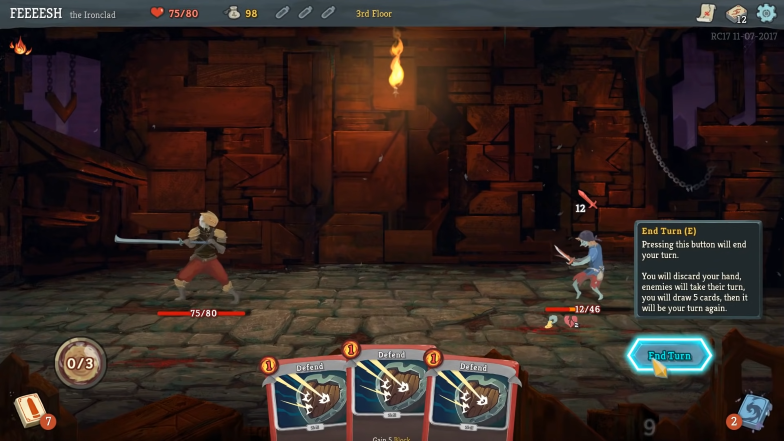
Plenty of the games we’ve described here are dark, serious, and gritty — sometimes to a fault. However, despite having the above-average difficulty that’s a staple of the roguelike genre, Slay the Spire manages to avoid all of that. Instead, the game has a somewhat lighthearted tone and some extremely well-written combat encounters.
Speaking of which: the core of the game is your ascent up the titular spire, where you’ll attempt to kill any monster or ghoul that gets in your way. And, as expected, all of them will — and you can only hope you didn’t get a bad hand.
This isn’t a metaphor, in case you were wondering. Slay the Spire’s primary selling point is its unique genre mix, which has been copied by others with varying degrees of success in subsequent years.
The abovementioned genre mix is a roguelike dungeon crawler, whose combat encounters heavily rely on deck building. So, imagine a dungeon crawler based on Magic: The Gathering or Hearthstone.
At the beginning of the game, you start by choosing one of the three characters, made distinct by their unique card decks. As you win in various combat encounters and work your way through the Spire, you’ll earn new cards that slowly give your character more and more power.
Now, with this being the roguelike that it is, a run up the top of the Spire doesn’t take more than an hour or so — however, each new run gives you valuable information about which cards are more effective in which situations. Also, you unlock new cards with each run, as well as collectible relics.
It’s definitely a game that rewards experimentation — and the best roguelike on this list if you’ve only got an hour for each playthrough.
Stellaris
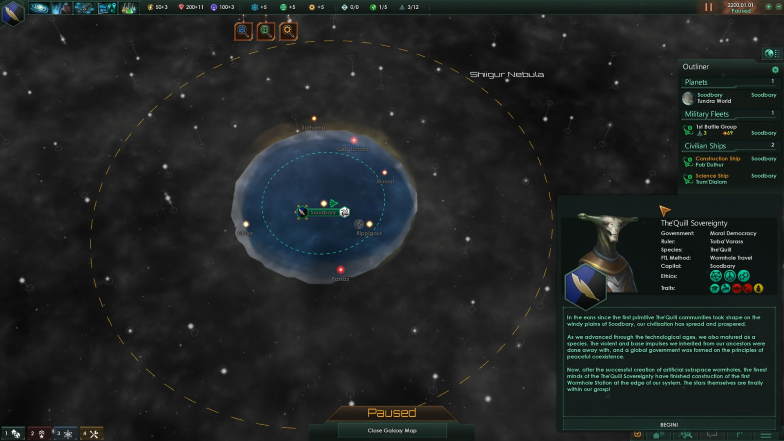
Now, our next pick on this list is pretty different from the rest. Chiefly in the fact that it isn’t a roguelike at all. However, Stellaris has another important thing in common with games like FTL: its operatic space setting.
If you’re at all familiar with Paradox and their other grand strategy offerings, you probably know what you’re in for here already. It’s an absolute behemoth of a strategy game, where you lead an interstellar civilization from its humble beginnings to galactic dominance.
Throughout each run, you’ll encounter other civilizations, as well as random galactic creatures and pirates, but all designed with amazing detail and depth. Unlike Crying Suns, which took inspiration from the works of Asimov and Frank Herbert, or FTL, which was mainly inspired by Star Trek, Stellaris decides to do everything at once.
Something resembling every single sci-fi trope, civilization, alien, or encounter you’ve seen propagated through the endless pages of sci-fi literature of the past century is present in Stellaris.
Interstellar trading guilds with their own military? Check. Pacifist spacefaring civilizations who only want to explore the cosmos? Check. A race of jingoistic avian creatures who attack everyone on sight? Check, check, and check.
It’s all there — and all of that flavor is just waiting for you to interact with it in true Paradox fashion; meaning countless interlocking political, diplomatic, and military systems.
If you’ve never played a complex grand strategy game, it may be too much to swallow at first — but once you immerse yourself in the game, you’ll be spending dozens of hours in Stellaris at a time without batting an eye. Games like Stellaris are truly immersive, and while it’s not the most similar game to FTL at first glance, FTL fans are sure to love it.
Spelunky
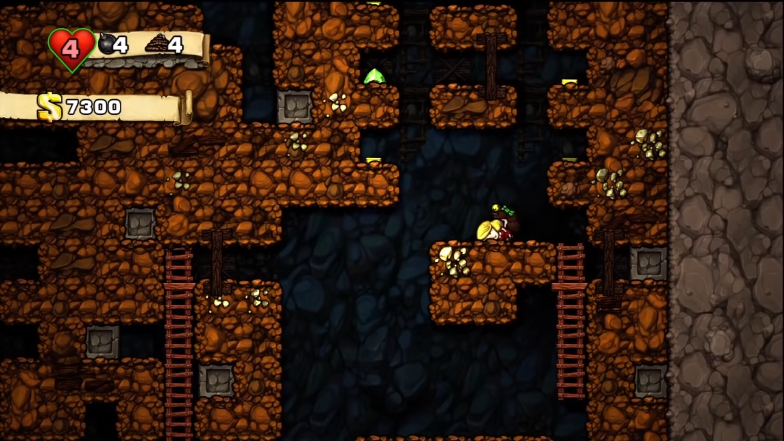
If there are two things that define games like FTL, they’re random encounters and difficulty. And while this is no sci-fi game about a brave spacefaring captain, both elements can be found in abundance in Spelunky.
Besides being the game that got people talking about roguelikes again all the way back in 2008, it achieved another important purpose: it made us all google what ‘spelunking’ means. Plus, it’s the best cave-exploration, Indiana Jones simulation game you will have played.
You see, all of those games fail to capture what’s essential about the ‘brave archeologist explorer’ trope — a fear of the unknown. Everything is pretty scripted and predictable in each of those games, more of a puzzle than an actual quest of exploration.
Well, that’s something Spelunky does far better.
Each brief foray into the unknown represents just that — going into a deep cave without knowing what to expect. You get some rope that helps you avoid falls, and a couple of bombs you can use to clear the environment, and that’s about it. There are some shops where you can buy weapons, but the primary skills you’ll need are with those two items.
Prepare to deal with long drops that might see you end up in a spike pit, or a safe pool of water. Or arrow traps that might stun and propel you towards more spikes. Or even crazed monkeys that will detonate and steal your bombs, right after you kill a bunch of harmless bones that suddenly transformed into undead skeletons.
Everything’s a dangerous guessing game in Spelunky, and it’s great fun even when you fail.If you’re a fan of strategic games like FTL, you’ll love this title.
Rogue Legacy
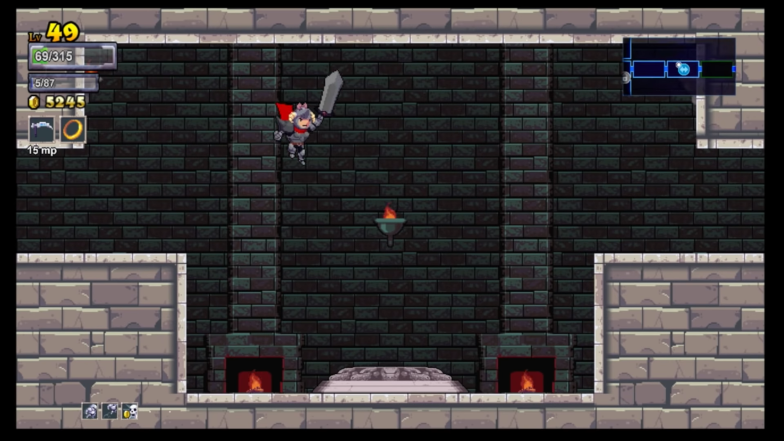
If you were a fan of the old Metroidvania games, Rogue Legacy will seem instantly familiar; especially if you’ve played any title from the Castlevania series.
The charmingly blurry pixel art aesthetic hides a difficult game — one that’s mired in the classic roguelike design of perma-death and procedurally generated worlds; or, in this case, castles.
The main twist in this game is that you’re not playing a single hero. You’re playing a family of heroes. And each time you die, you’re replaced with your descendant.
In the meantime, you can spend any gold that you’ve earned on your past run on upgrades in the family fort. It’s a small dynamic, but it makes the game just interesting enough to stand out in a sea of other roguelikes.

